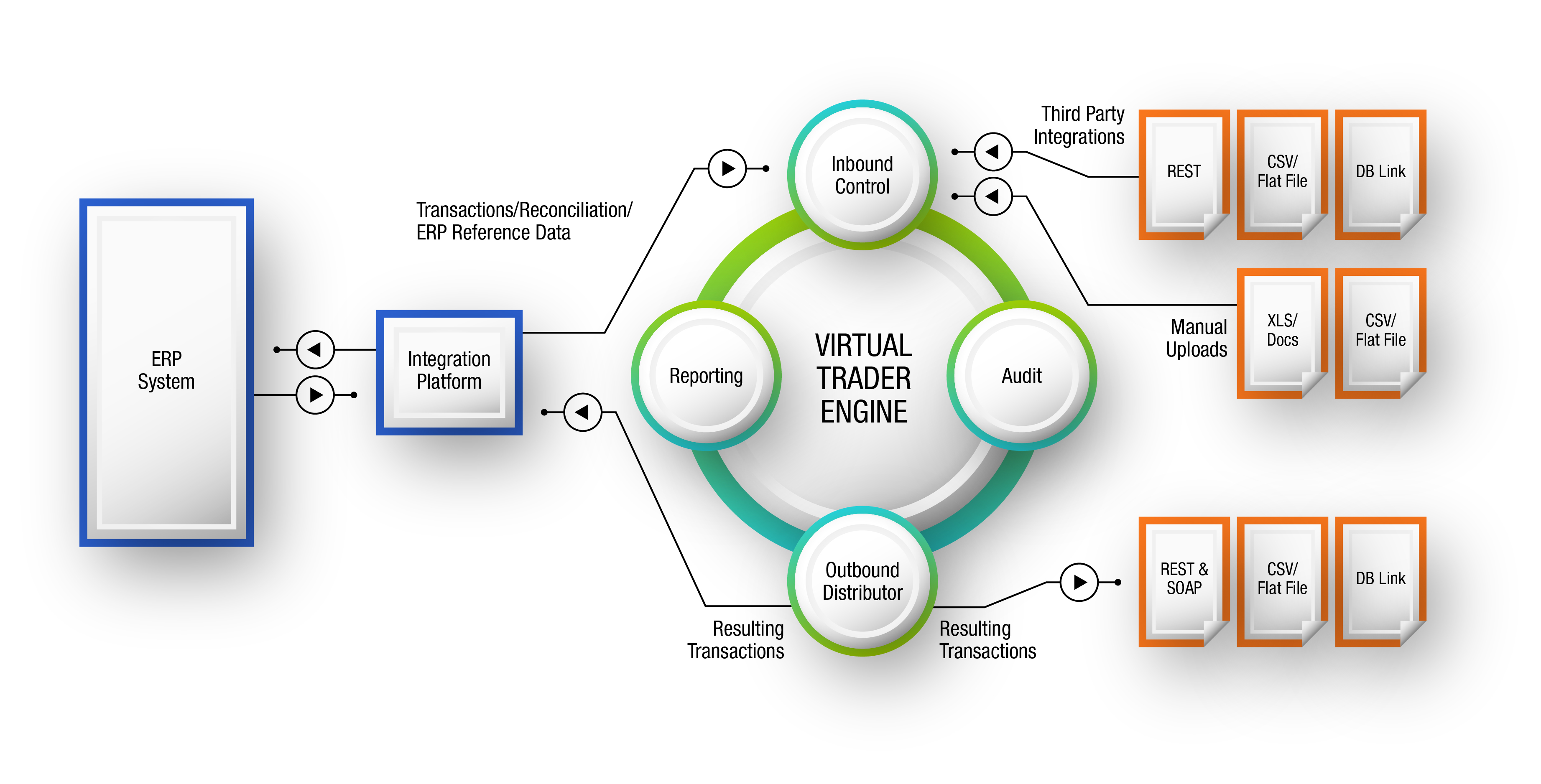In a perfect world, we'd all be operating from a single ERP system. In an imperfect world, Virtual Trader syncs intercompany between corporate systems.



Within an organization, it’s surprisingly common for business units to use different enterprise resource planning (ERP) systems. This can create compatibility issues — for example, when one party is using Oracle and another is reliant on SAP. This often arises from buyouts or mergers; but, regardless of the cause, it can certainly create difficulties.
Cross-system working also emanates from IT frameworks that sit outside the core ERP systems. This can apply to a host of disconnected applications, including systems devoted to billing, claims, order processing, revenue, and project accounting. Each of these important business components can be based on entirely different IT infrastructure, such as SaaS, mainframe, legacy, homegrown, or industry-specific applications.

When it comes to intercompany activity, many businesses are searching for a way to transact efficiently across different ERP systems; they are looking for a hub to bring together intercompany processes in one place, regardless of the complexity of the IT landscape.
Virtual Trader is a solution that delivers intercompany integration across multiple ERP systems, making it easy to integrate data from diverse systems. This ensures that even the most logistically complicated IT operation can be greatly simplified — improving the way that you deal with ERP activity.
The solution ensures that intercompany can be accounted for at the time of transaction rather than relying on an arduous process of mass manual entry during each accounting period. This allows accurate financial postings to be distributed to ledgers while simultaneously delivering timely financial reporting.
With both SAP and Oracle ERP systems installed, getting a consistent view of intercompany was a real challenge before implementing Virtual Trader.
Global PC Manufacturer
.png)
Another major advantage of Virtual Trader is the single worldview it offers from a centralized application. This makes it easy to standardize both intercompany business rules and transactional activity — while also simplifying access. All accounting users can globally access a single system, regardless of their native ERP, resulting in a considerably more joined-up and cohesive approach.
By implementing our system, cross-selling between systems is slickly facilitated in a post-M&A environment, and critical corporate accounting policies can be enforced.
With Virtual Trader, you remove the lack of visibility often associated with less coherent approaches. Manual duplication of effort is avoided, and it is no longer necessary to build custom integrations to facilitate cross-selling. Virtual Trader offers a huge boost to the efficiency, cohesion, and effectiveness of any organization’s intercompany process across ERP systems.
The extensive functionality in Virtual Trader allows you to:
We offer a no-cost demonstration of Virtual Trader so you can experience its powerful palette of features!
 US
+1 800 961 9640
US
+1 800 961 9640
 Europe
+44 2476 236 990
Europe
+44 2476 236 990


Copyright © Virtual Trader